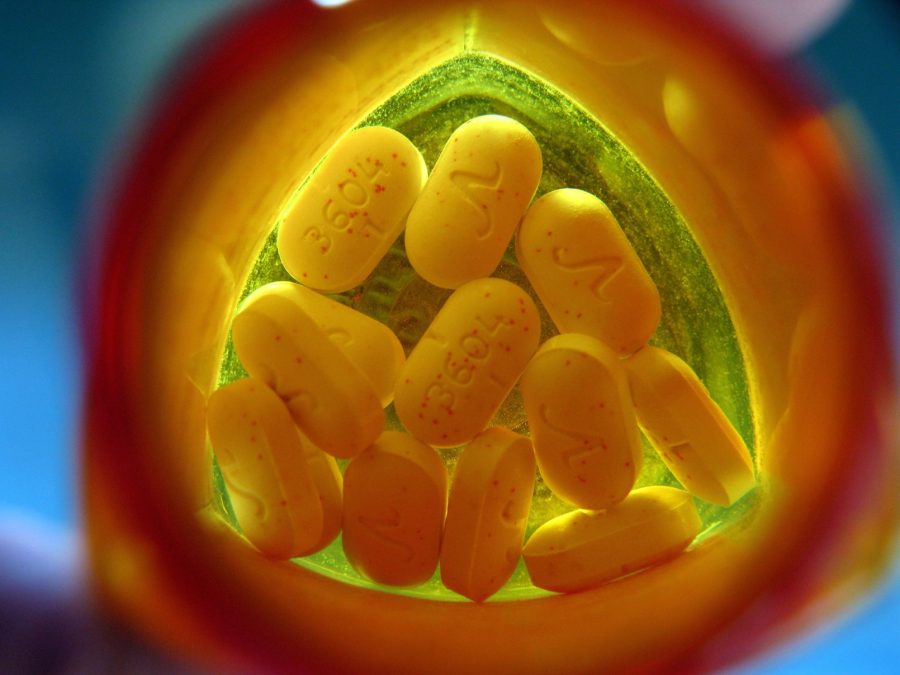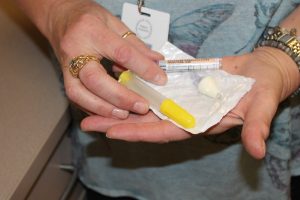Congressman, district attorney fight extensive addiction issue in nation
According to Worcester District Attorney Joseph Early Jr., the United States comprises of five percent of the global population but consumes 80 percent of the world’s opioids.
May 10, 2016
With the opioid crisis sweeping the nation, federal and state legislators like Congressman Jim McGovern and Worcester County District Attorney Joseph Early Jr. have worked to combat the issue through bipartisan collaboration and characterizing addiction as an illness that can strike everyone, including teenagers.
McGovern, democrat of Massachusetts’s second congressional district, undertook steps to hold back the opioid tide by supporting bills like the Prevent Drug Addiction Act of 2016.
“I don’t think the legislation we have in place is doing enough,” McGovern said. “We must expand treatment… We need to expand public health and safety laws to combat heroin. This is primarily a health issue, not a criminal justice issue.”
McGovern supports several measures to prevent addiction such as community policing and support systems in schools. McGovern said a number of young addicts he has spoken with began to use drugs because the substances helped them cope with depression and pressure.
“It’s been a long time since I was in high school and the pressure on kids these days is higher than it was for me,” McGovern said. “It’s important for people in the government to listen to young people so we can prevent them from going down that pathway [to opioids].”
In line with McGovern’s concerns, Early expressed his own worries about the opioid crisis and its effects.
“I’ve been trying to explain and trying to get the message across that [opioid addiction] is an illness,” Early said. “We have to have more compassion [for addicts], and resources to help them.”
Early formed a community coalition called the DA Central Massachusetts Opioid Task Force, which includes law enforcement, government leaders, health-care professionals, and substance abuse experts.
“We are introducing Narcan training, prevention and intervention projects, and holding community forums in order to raise awareness. I was at Algonquin [in January of 2016] and saw a lot of people affected by it, either addicts or family members,” Early said. “We [Americans] are five percent of the [world’s] population and we use 80 percent of the world’s prescribed opioids. They are too readily available and too accessible to kids.”
Both McGovern and Early have discussed opioid addiction with addicts and have witnessed the plight the drugs cause.
“I have been to too many funerals of high school students who died due to addiction… It’s heartbreaking,” McGovern said.“Young men and women who had bright futures just got sucked in. I want people to live long, healthy, productive lives. The community has lost incredible lives and minds to this.”
McGovern urges communities to strive towards unilateral support. He suggest a two-prong approach which supplies preventive measures against initial addiction and supports those who are already suffering from opioids.
Early has also made strides in combating the crisis. Along with the Opioid Task Force, his office received one of 14 Harold Rogers grants which will help fund a partnership with the Mass. College of Pharmacy and UMass Medical Center to develop preventive measures.
Both McGovern and Early emphasize the importance of the teenagers’ participation in combating the opioid crisis.
“[Students] need to tell us what can be done,” McGovern said. “How do we alleviate the pressure? What support structures can we offer? I want to encourage people at Algonquin to speak up; we need to hear from you directly. If you have a good idea, tell us.”
“This [opioids] is one of the most dangerous things you will see in your lifetime,” Early said. “It’s a game changer. You’ve got to stay away from it and you’ve got to get yourself smart on it.”
McGovern and Early hope the government and the people can work together to battle the opioid crisis with compassion.
“We need to stop using words like ‘junkie’ and ‘crackhead’ and start using words like ‘son,’ ‘daughter,’ and ‘parent.’ If we remove the stigma, more people will seek treatment.” Early said.
“Together, we need to look beyond the stereotypes; this is a health issue, addiction is a health issue, and we must approach it as a health issue,” McGovern said.












